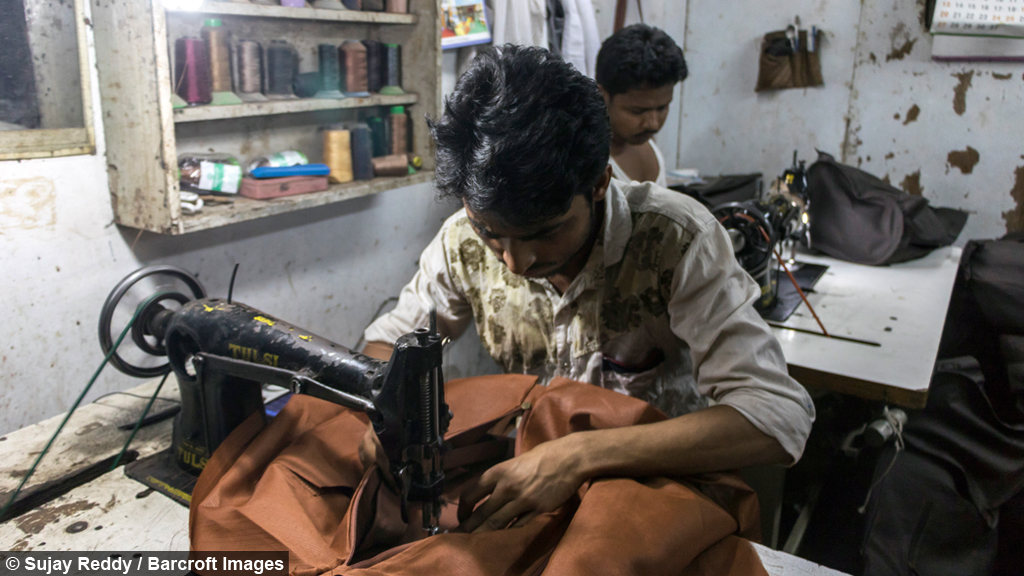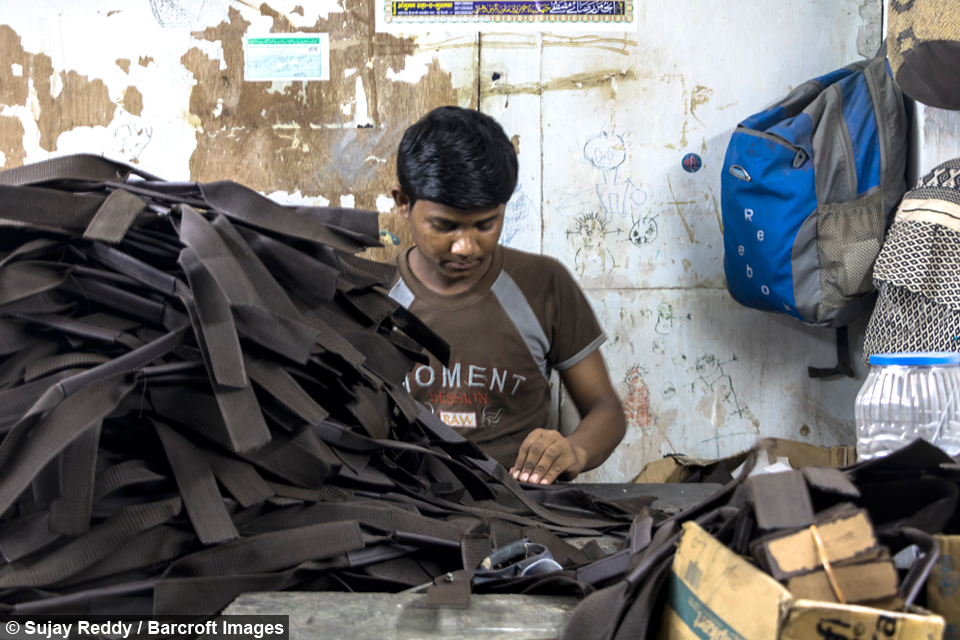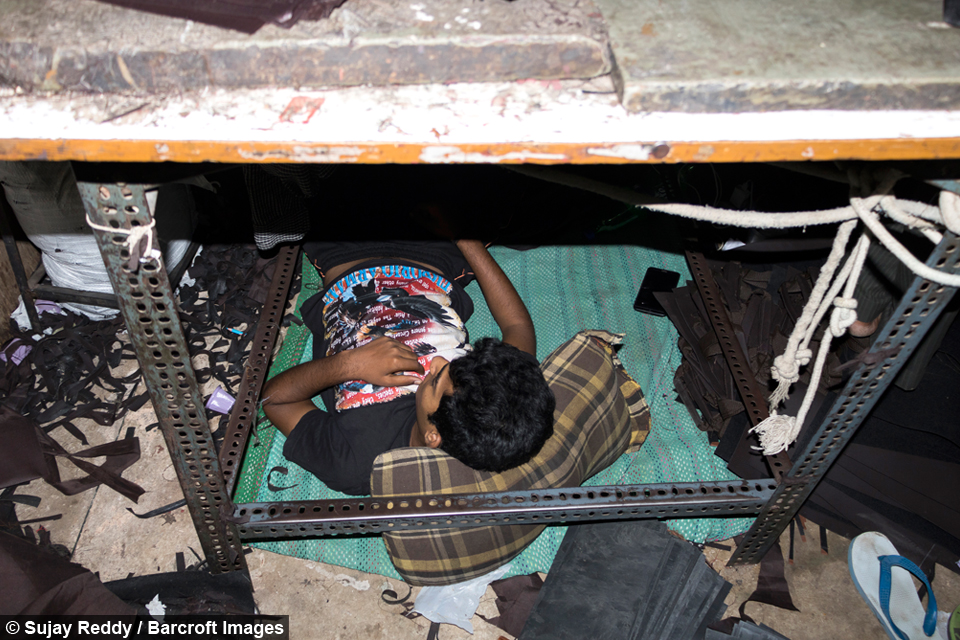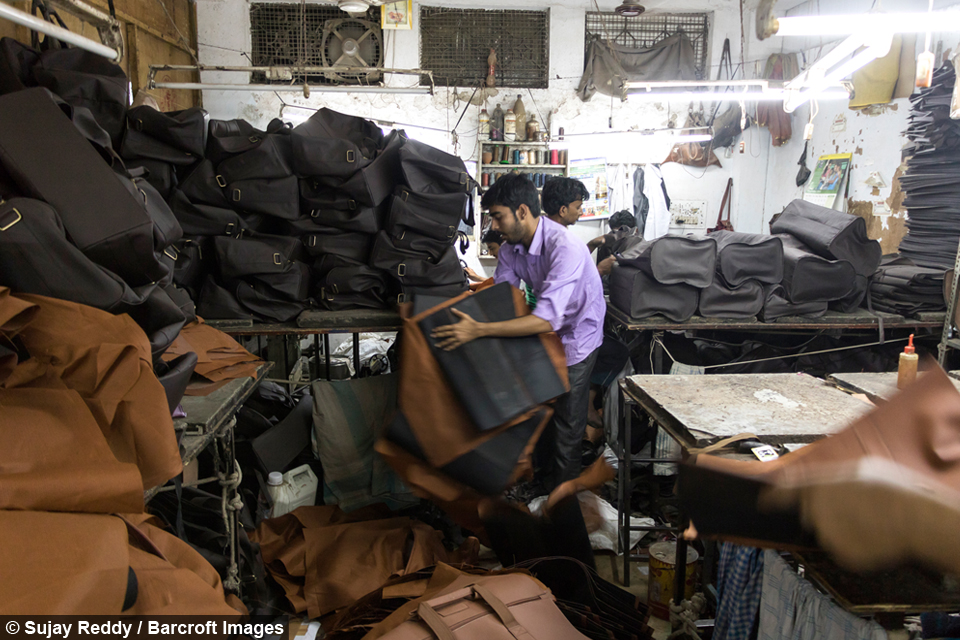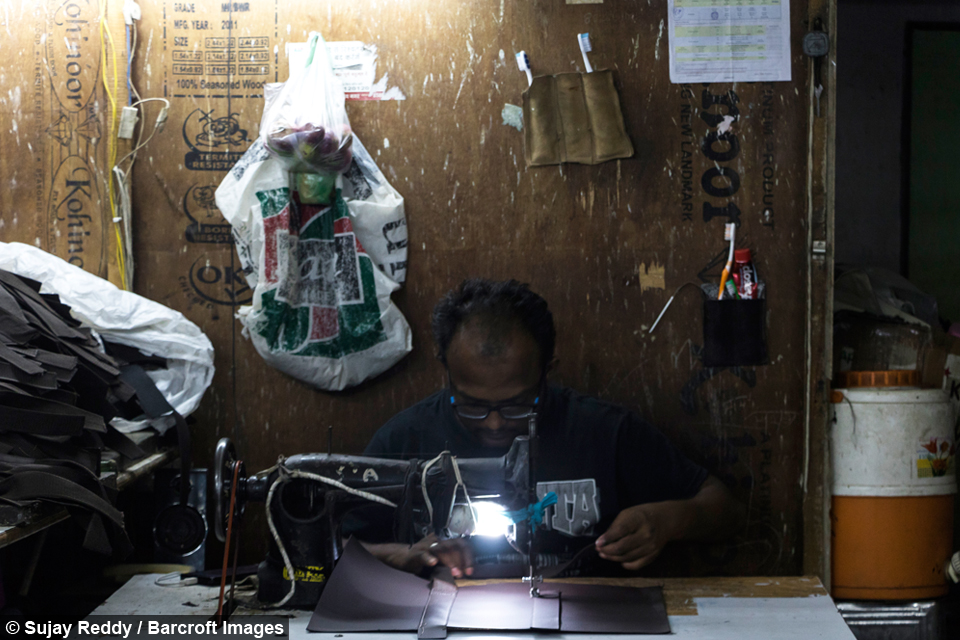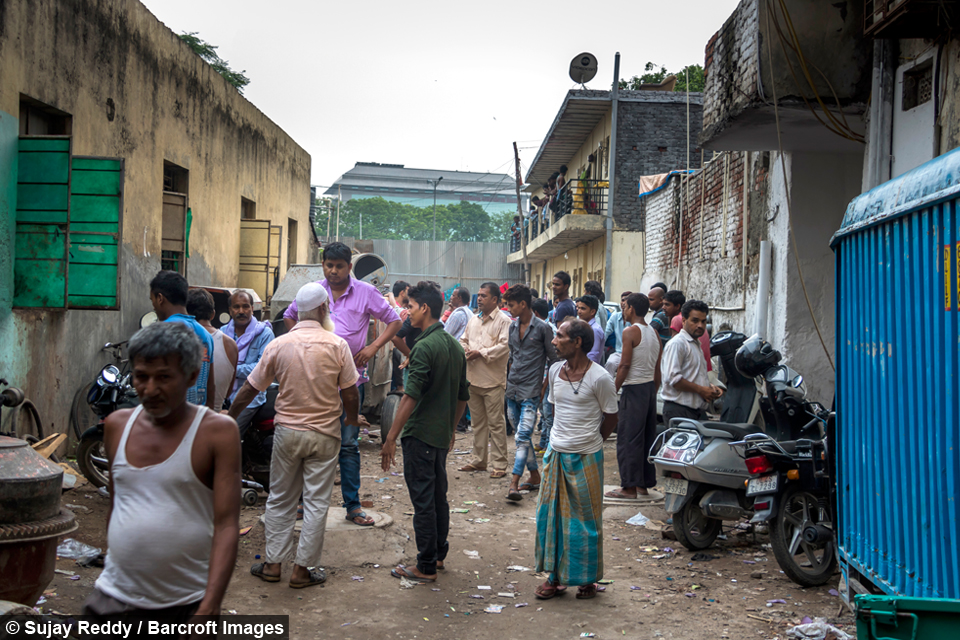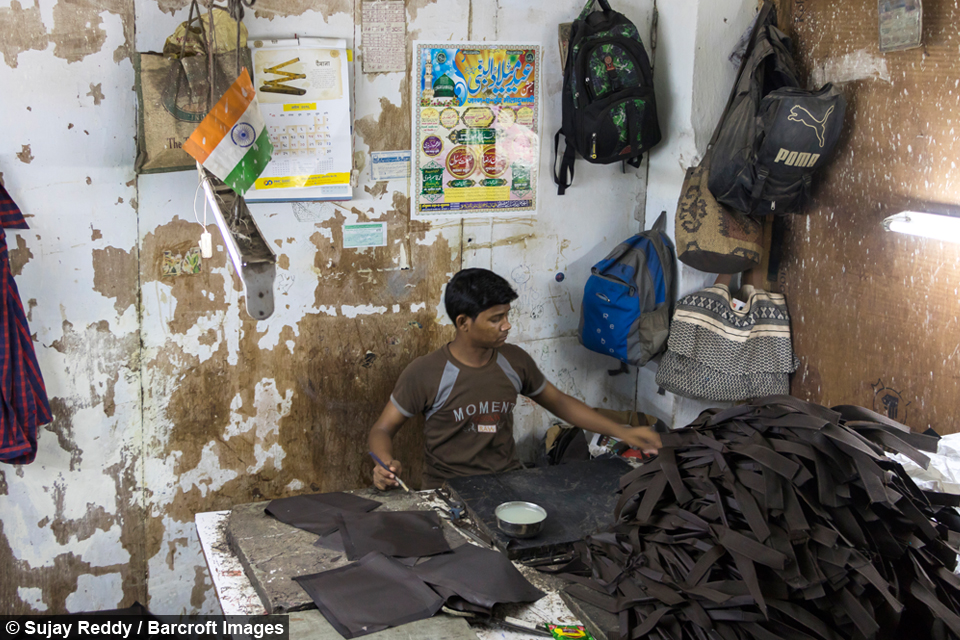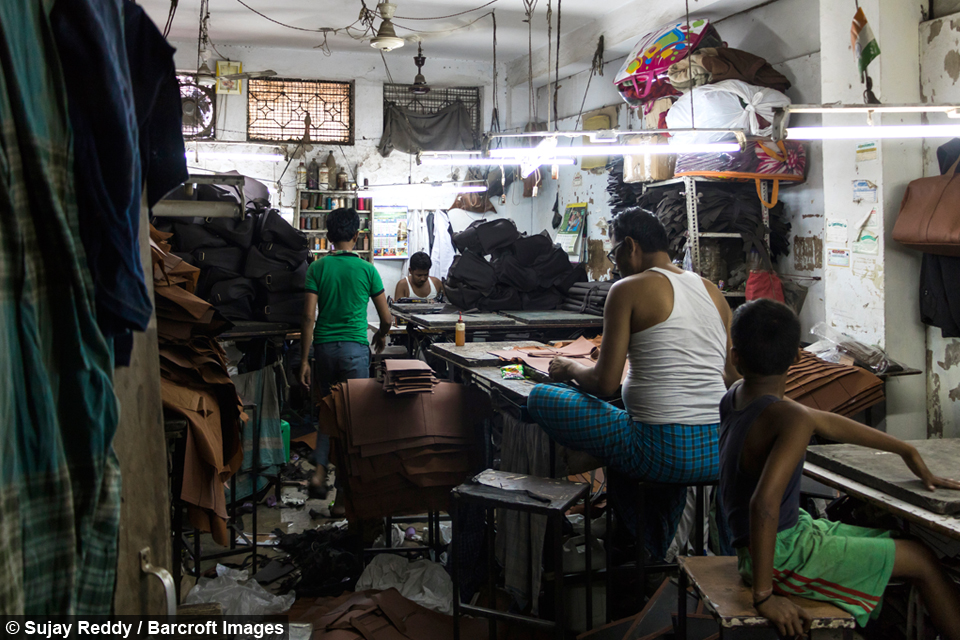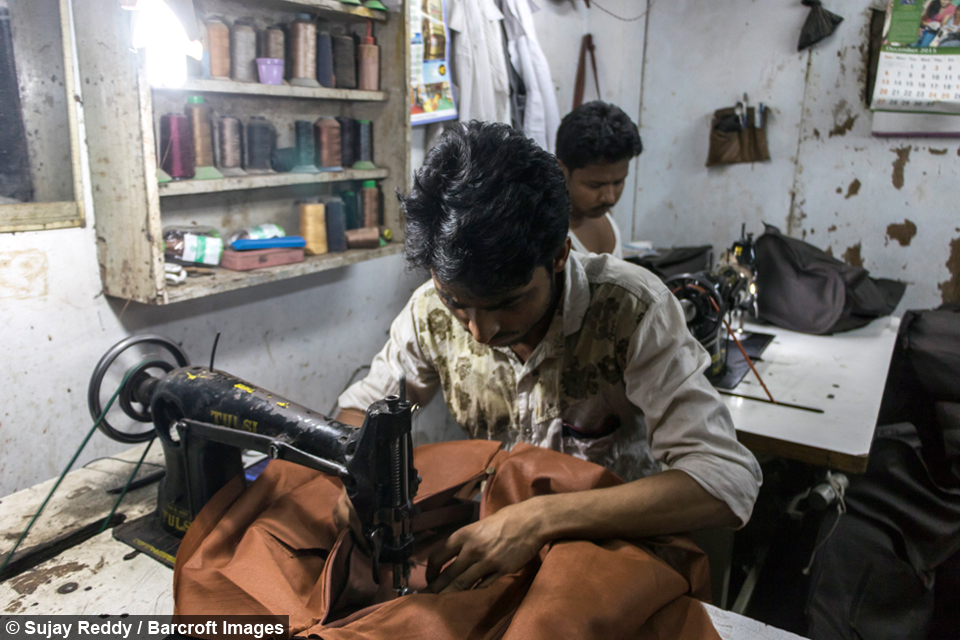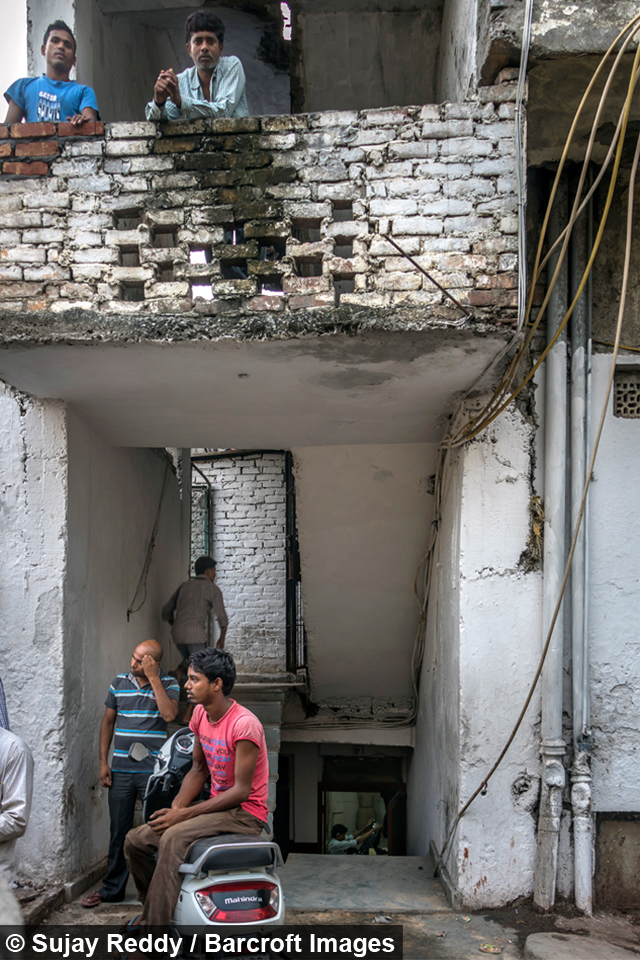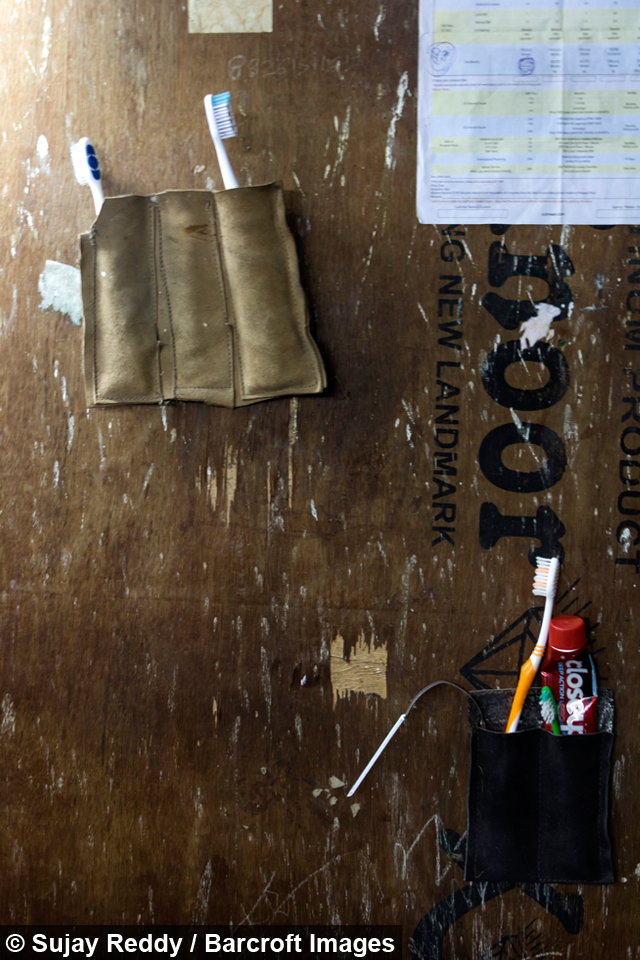Inside A Delhi Basement Workshop
By Shatabdi Chakrabarti
Scroll down for the full story
Khirki village, a small settlement area opposite a posh mall in South Delhi, India, is home to many local workshops and small scale industries.
And it was one such business that inspired photographer Sujay Reddy to document its workers.
Sujay explained: “I used to live in an apartment complex opposite a building where tailors used to stitch luggage bags in the basement.
"Since I would see them everyday, I decided to document their time spent in the basement."
When Sujay began shooting the business, there were seven tailors who were employed at the workshop stitching the leather luggage.
These men hailed from the state of Bihar and, like hundreds of other labourers and workers who come to big cities in search of work, they had left behind their homes and families due to the lack of jobs in their home towns.
Sujay said: “Most of them had been in Delhi for at least four years when I met them. They would make about 7000-8000 INR (£85- £95) a month, depending on their work experience and the number of bags they produced.
"They used to send the money back home and keep a little for their use in the city. And they would visit their home towns just once a year during some important festivals."
In order to save money, these men mostly live in the work space itself or rent a small room in the locality and share a common bathroom with others.
These rented rooms didn’t have beds to sleep on and the men would keep their personal belongings inside the workshop for safe keeping.
Sujay explained: “The conditions were dire. They were not even provided with basic amenities like clean water at times. I once saw them bathing outdoors in the rain and even storing that rain water to be used later.
"They even slept on park benches and rooftops or under the tables in the work space.”
Sujay also captured the extensive hours worked by the tailors.
He said: "The seven tailors in that small basement would spend the majority of their time stitching luggage bags. The orders would keep coming in and, depending on the demand, at times they even worked through the night.
"There were no proper precautions and safety measures and sometimes they received their payments much later. The only source of entertainment would be watching TV sitting outside shops in the area and chatting with each other.”
